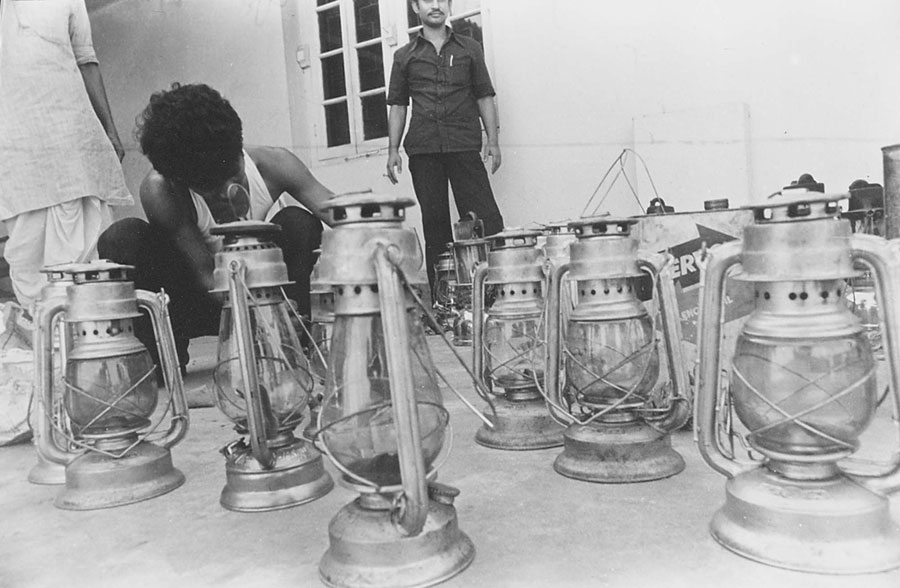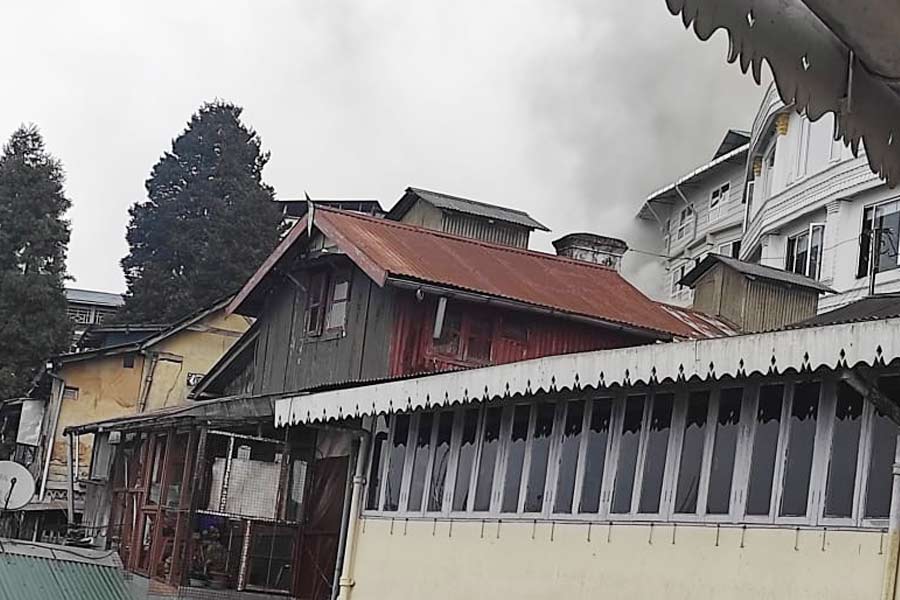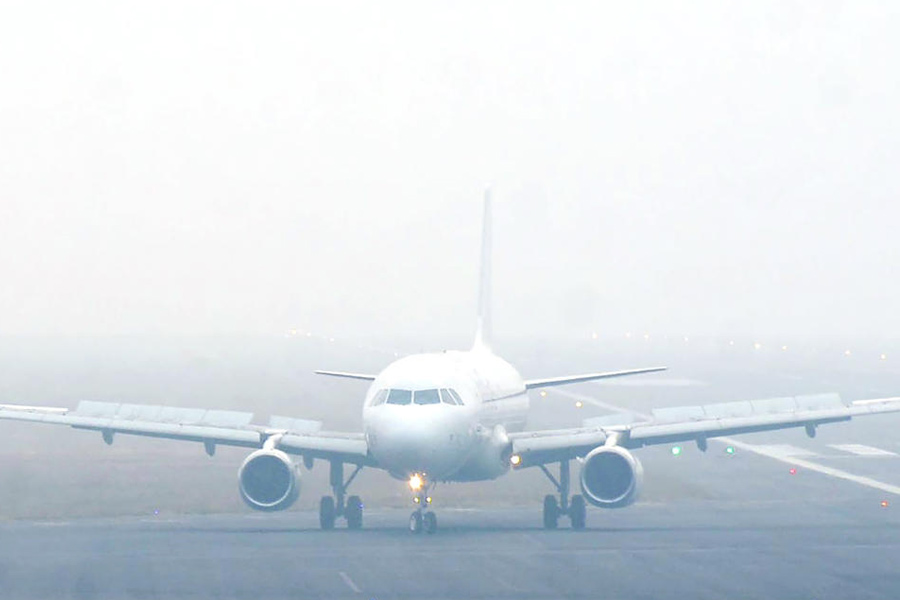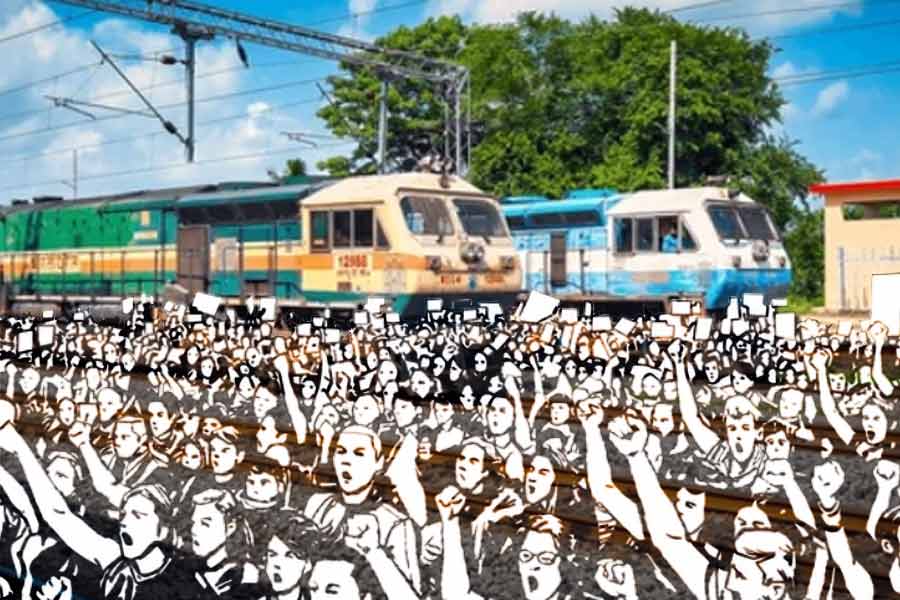- Lockdown 1962, Sino-Indian War
The city is under a blackout for fear of Chinese air strikes. Shops and offices are shut. Eight children in a joint family, living in a house on Fern Road in Ballygunge, spend their evenings playing carrom. In an adjoining room, the elders are glued to the radio, listening to the news or Binaca Geetmala presented by Ameen Sayani, a budding broadcaster then.
- Lockdown 1984, Indira Gandhi’s assassination and the Sikh riots
Calcutta is again under a curfew. A young marketing executive with a paint manufacturer has to walk from a factory in Shalimar to Esplanade before he finds a bus to his Behala home. Most offices are shut for a few days. But adda continues behind half-downed shutters of tea stalls and local clubs. Television is still very much a rich man’s entertainment. Radio and books are for everybody.
- Lockdown 2020, novel coronavirus
In a New Alipore apartment, a 19-year-old girl is hooked to Hunters on Amazon Prime where Al Pacino, in his web series debut, plays a Holocaust survivor on the trail of Nazis in New York.
In an adjacent room, his parents are shuffling between Indian and international news channels for updates on the Covid-19 toll. In the kitchen, her younger sister is making an Instagram post to let the world know that she has just baked her first brownie.
If the tenure of the current lockdown is unprecedented, so is the “can-do list” for some of the people confined in their homes.
There is a bouquet of online streaming platforms, waiting to deliver content according to your choice. If gangster flicks are your dope, tune in to Peaky Blinders on Netflix, which traces the rise of the Shelby clan in post-World War I England, led by a deliciously dangerous Cillian Murphy.
Love desi stuff? Catch up on Kay Kay Menon as an intel boss leading a 19-year manhunt for a dreaded terror mastermind in Special Ops on Hotstar.
Music lovers are not to be left behind. Singer Ozzy Osbourne is back with Ordinary Man, his first solo album in a decade.
The album is playing on the loop in the systems of many, thanks to the likes of Spotify, a digital music, podcast, and video streaming service that gives users access to millions of songs from artistes all over the world.
Thrown into the mix are several social networking apps for group video calls. “I was studying in Delhi during the 1984 Sikh riots. From Calcutta, my father used to book lightning trunk calls (that connected on an urgent basis and cost around eight times the normal rate) and talk to me on my landlord’s landline number,” said Niladri Mitra, who retired from a PSU manufacturing company.
Mitra has been talking to his son, who works in Illinois, at least once a day for the past two weeks.
The video call enables Mitra, seated in his drawing room in Salt Lake, to see his son every day. “He even gets chided by his mother for not cleaning his room,” said Mitra.
The evolution of curfew was not lost on senior citizens. Sandhya Ghosh, in her mid-seventies, was posted at the Park Circus branch of a nationalised bank during the 1984 violence and lockdown. “A police officer came to our branch and cautioned against overcrowding. But the customers were panic-stricken and there was a huge rush,” remembered Ghosh, who now lives in Singhi Park.
The bank nearest to her home has remained shut for the past few days. But that has not stopped her from paying the monthly bills via e-wallets.
Ghosh was a college student during the China war of 1962. “We cousins played cards and carrom and got an occasional chance to tune in to the radio in the presence of seniors. Hindi songs were a strict no-no,” she said.
Cut to 2020.
Now, WhatsApp groups are teeming with messages — what to watch on different platforms.
“City on a hill — done. Special Ops — done. Laal Kaptaan — done. Ebar ki dekhbo (What to watch now)? Please suggest,” read a message posted on a WhatsApp group of friends, all former room-mates in Bangalore and now settled in different parts of the country.
The message was posted at 12.31pm on March 25. Within 15 minutes, there were over 50 messages and a mini war of words on how good or bad a series was. “If you haven’t, please watch Mirzapur,” said a member of the group.
Another member’s reply: “Going by your love for mediocre content, you will love it. But since this (lockdown) is also a chance to engage your mind, I would suggest Better Call Saul (an American crime drama series). One of the best ever.”
There are apps like Houseparty, whose popularity has soared as millions around the world are in self-isolation. The video-calling app lets you chat with friends, play games and much more.
While teachers are conducting online classes and assignments, the young girls and boys know how to find their “us time”.
In school, the “us time” meant intervals between two classes. In the virtual world, it has remained so.
“We log on to the online app before the scheduled time and chat with one another. It is so spontaneous. Someone might have just woken up and someone might have run straight out of the bathroom after washing the hair. This is the ‘us time’. Ditto for the time we get in between classes when one teacher has left and the other is yet to arrive,” said a Class XI student of the reputable school.
Not that everyone can afford the options that a modern home offers. Life is still a torture in one-room hutments in large parts of the city, already crammed and made more stifling by the rising temperature and the need to stay indoors.
Author Mani Shankar Mukherjee, a chronicler of Calcutta and better known as Shankar, said the current lockdown was unprecedented on two counts.
“The duration of the lockdown is something the city, or India, has never seen. Earlier shutdowns lasted for a few days. The other stark difference is social distancing. During earlier lockdowns, there was a fear of life but because of violence. People sought comfort in each other, whenever possible, during crisis. But now, people are weary of coming too close to each other,” said Shankar.
Anupam Majumdar, in his seventies now, spoke in the same vein about earlier shutdowns. Majumdar had walked from a factory in Shalimar to Esplanade to board a bus to Behala on the day Indira Gandhi was killed.
“Over the next few days, most offices were shut. But in para clubs and tea stalls, people like us met for a daily dose of adda behind half-downed shutters,” he said.
But during the current lockdown, Majumdar has not been able to see his son, who lives in a housing complex in Panchasayar, also the home of Bengal’s first confirmed Covid-19 patient. Majumdar is asthmatic and his son “did not want to take any risk”.
Asked about his take on the evolution of lockdown and the plenty of options available now, veteran author Shirshendu Mukhopadhyay put things in perspective.
“I don’t think the number of options in the real or virtual world matter when there is a compulsion. People, young or old, know they are confined within the four walls. Whatever they do to kill time, they know they are doing it because of lack of other options. There is disease, death and gloom outside. Playing an online game now and during normal circumstances are not the same thing,” he said.
Reeta Bose, who spent her working life in Mumbai with the Reserve Bank of India, settled down in Calcutta post-retirement. She lived through the riots following the Babri Masjid demolition on December 6, 1992.
“During the riots, there was a similar shutdown. Everything was closed. There was little to do. Read a book, watch TV,” she remembered.
In lockdown 2020, Bose has been quite busy. She has just finished watching Tokyo Trials — based on the international tribunal held by the Allied Forces at the end of World War II that tried and sentenced Japanese leaders for war crimes — on Netflix.
Bose, who did her master’s in mathematics from Calcutta University, also takes regular classes on an online math tutoring programme for school students. “I don’t realise how the day goes by,” she said.
But this is not how she had planned the summer. Next month, she was supposed to have been on Isle of Man, to be by the side of her daughter, who is expecting her first baby.
“Some things are not meant to be,” she rued.











